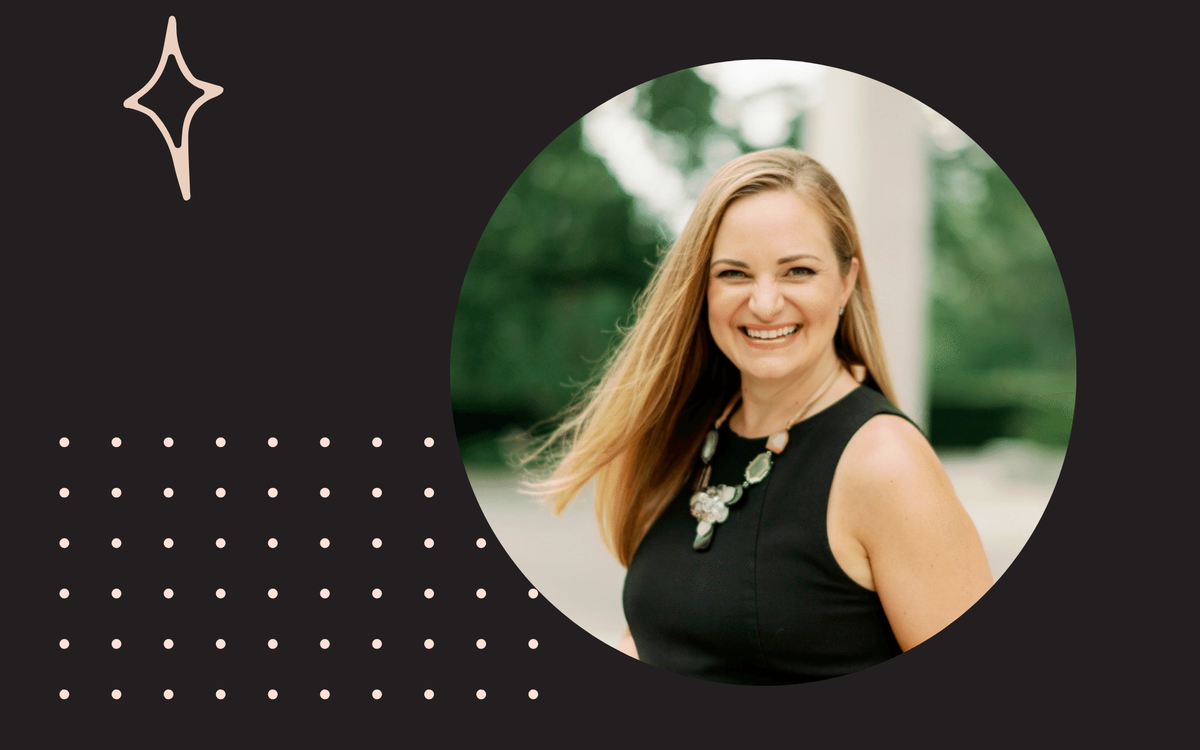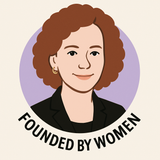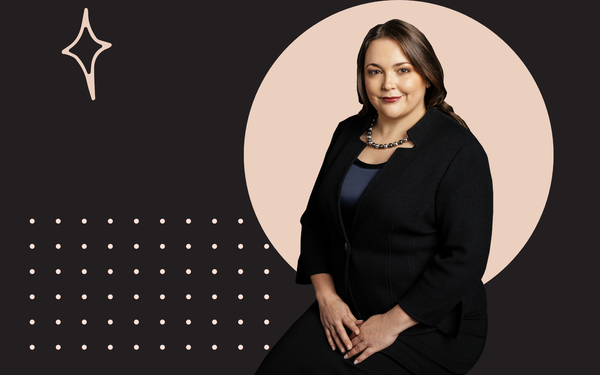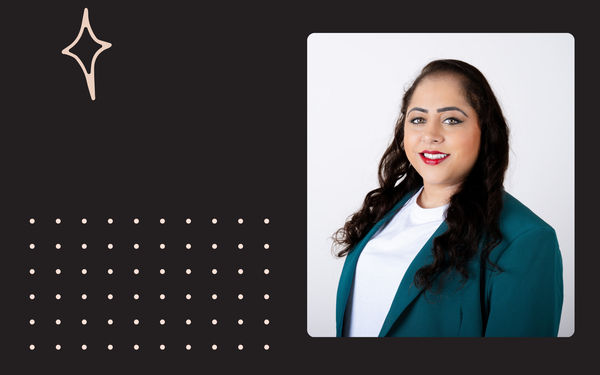From Dinner Table Conversations to National Impact: How Katie Test Davis Built a PR Empire for Organizations That Love Kids

When Katie Test Davis moved from Washington, D.C. to Raleigh in 2019, she thought she might take another traditional in-house communications role. Instead, her phone started ringing a lot. Former colleagues and new contacts across North Carolina were calling with projects, seeking the expertise of someone who had spent two decades mastering the art of advocacy communications for children and families.
What happened next wasn't just a career pivot. It was the birth of something much bigger.
Today, Katie is the founder of Forthright Advising, a national PR and communications firm that works exclusively with organizations that love kids. As a member of the 2021 Forbes Next 1000 class, she leads an all-remote team with more than 115 years of combined experience, serving clients from nonprofits and foundations to innovative public school districts across the country.
But this success story starts much earlier, around a dinner table in Charlotte. That’s where two UNC special education professors – Katie’s parents – raised their daughter with conversations about equity, advocacy, and doing what's right for kids. That foundation would eventually guide Katie through 20 years working in-house at public school districts, family-focused nonprofits like ASCD and Children's Law Center, and PR agencies, before she took the leap to build something entirely her own.
In this candid conversation, Katie shares the pivotal moments that led her to turn freelance calls into a thriving agency, the challenges of scaling while staying true to mission-driven values, and her hard-won advice for other women building specialized firms in spaces where business strategy meets emotional labor.
Her philosophy is simple but powerful: winning results come from "data-driven best practices plus a whole lot of empathy." And as you'll see, that combination has proven to be the secret sauce for creating lasting change for organizations and the children that they serve.
Q: What made you decide to turn those freelance calls into Forthright Advising instead of taking another traditional in-house role?
Honestly, the answer is pretty simple: the community I was serving wanted more, and I knew I had the specific skills to help.
When I moved from DC to Raleigh back in 2019, I thought I might take a traditional in-house role. But then the phone started ringing. A lot. It was former colleagues from DC and new contacts in Raleigh and across North Carolina.
It became clear there was a huge gap in the market.
So many brilliant, passionate child-and-family advocates were doing world-changing work for kids, but they struggled to communicate their impact. They needed a partner who not only understood the nuances of their work but could translate it into powerful, effective communications.
I realized I couldn't possibly say no to all the incredible opportunities to make an impact alongside amazing organizations. More importantly, I saw a path to make a bigger difference.
My sweet spot has always been two things:
- Making the complicated simple. I love diving into complex, wonky topics—education policy, child welfare reform, you name it—and building a brand messaging strategy that is compelling and easy for anyone to understand. It's about finding the human story in the data.
- Creating an audience-centric plan. I’m a fierce believer that if you’re talking to everyone, you’re talking to no one. My entire approach to strategic communications planning is built on defining clear goals and identifying the specific audiences you need to reach to make change happen. This allows us to create targeted marketing strategies and advocacy campaigns that actually move the needle.
In a traditional in-house role, I could help one organization. But by launching Forthright Advising, I could build a team to support dozens of them. Today, I live in NYC, and our team at Forthright serves clients all across the country.
It was my chance to scale the impact and walk alongside so many leaders who share my values. Turning those freelance calls into an agency was a calling I couldn't ignore.
Q: How did your upbringing shape your decision to work exclusively with organizations that love kids?
I grew up at a dinner table where conversations about doing what was right for kids were the main course. My parents were both special education professors at UNC-Charlotte, so fighting for kids and families to have what they need is just… part of my DNA. It’s what drove my 20 years working in-house at amazing public school districts and nonprofits. I tried my hand at doing PR for different topics, but I kept coming back to wanting to support children and families.
Q: You're a member of the 2021 Forbes Next 1000 class, and you've built an all-remote team with more than 115 years of combined experience serving clients across the country. How did you transition from being known as a powerhouse communications strategist yourself to building a firm where you're managing senior leaders and empowering a team to deliver results?
I’ve always been just as passionate about leading teams as I have been about communications strategy. For me, they go hand-in-hand.
I was lucky enough to get my first taste of leadership early. I was promoted to lead the communications department at ASCD in my mid-twenties, and I was hooked. I learned so much about how to build and empower a team of brilliant people to do their best work.
I absolutely loved it.
When I started Forthright, I knew from day one that my vision was always bigger than just my own work. I wanted to build a truly great place to work, full of smart, kind, and passionate people who could make a massive impact on our communities.
The transition from doing the work myself to leading the team that does the work felt really natural. My job now is to hire amazing leaders and then get out of their way so they can deliver incredible results for our clients.
It's a shift from being the powerhouse to building a whole house full of power.
This team approach is what allows us to offer such comprehensive support to the organizations we love:
- It means our nonprofit marketing isn't just one person's good idea, but a strategy built from the collective expertise of our entire team.
- It lets us develop a truly collaborative communications strategy for our clients, where we can pressure-test every idea to make sure it's the right one.
- Our nonprofit communications planning is stronger because it’s built by a team of specialists who know the sector inside and out. We're a whole brain trust of teammates who have worked in-house, in government, and in school districts. We get it.
- When it comes to campaign management, having a full team means we can be nimble, responsive, and execute complex plans flawlessly.
- And our approach to branding is all about teamwork—we bring together different perspectives to create brands that are authentic, powerful, and truly connect with the right audiences.
Q: What's been the hardest part about scaling while maintaining your values-driven approach?
The hardest part isn’t the temptation to compromise our values—that’s a non-starter for us. The hardest part is the discipline it takes to say “no” to good opportunities so we can say “heck yes” to the right ones.
From the very beginning, I was crystal clear about who we would serve: child and family-focused nonprofits, foundations, associations, government agencies and public school districts.
That’s it. That’s our entire list.
And as we’ve grown, we’ve had amazing opportunities to work with organizations outside of that mission. It can be tough to turn down interesting, well-funded projects. But protecting our focus is everything.
Why? Because our values-driven approach is also our competitive advantage. We have become true experts in marketing and PR for family-focused organizations. We live and breathe this work, which means we bring a level of understanding that a generalist firm simply can’t.
This deep expertise is what allows us to excel at:
- Developing public relations campaigns for nonprofits that need to reach busy parents, overworked educators, and distracted policymakers with messages that cut through the noise.
- Crafting authentic storytelling for child advocacy groups that honors the lived experiences of families and inspires real action.
- Building effective community engagement strategies for school districts that foster trust and collaboration between families and their schools.
- Creating compelling brand messaging for foundations that powerfully communicates their impact on children and families.
Scaling means being fiercely protective of our team's energy and expertise. If we diluted our focus, we couldn't deliver the best-in-class work that our partners deserve. That discipline is exactly why we've been able to scale successfully. It ensures we remain the go-to partner for leaders who are fighting for kids.
Q: Your philosophy is that winning results come from "data-driven best practices plus a whole lot of empathy," and you've said that Forthright clients "don't settle for the way things have always been done."
As a female founder building a niche PR firm that only works with child and family-focused organizations, what advice would you give to other women about the decision to specialize versus staying generalist, saying no to clients who don't align with your mission, and pricing services confidently when your work involves both strategic communications and the emotional labor of advocating for vulnerable populations?
My advice for other women building a business in this space boils down to three things.
1. Niche Down. Immediately.
The single best decision I ever made was to specialize. Being a generalist is a trap. It feels safer because you think you have a wider net, but you end up being a master of none.
When you focus, you become an undeniable expert.
Because we are laser-focused on the child and family sector, our strategic communications planning is just better. We’re not guessing what messages will resonate with parents, educators, or lawmakers. We know. This expertise is particularly critical when you're doing PR for foundations that need to communicate complex grantmaking strategies or when you’re deep in communication planning for nonprofits where every dollar and every minute has to count.
Being a specialist is your superpower. Use it.
2. "No" is a Complete (and Highly Important) Sentence.
In the beginning, you’ll be tempted to take any client that comes with a budget. Don’t. Every time you say "yes" to a client who doesn't align with your mission, you are stealing time and energy from the clients you were born to serve. Or from building the business.
Saying "no" is clear, and clarity is kindness (shout out Brené Brown). It’s about protecting your team's passion and preventing mission drift. We turn down good work all the time because it’s not the right work for us. That focus is what keeps us sharp and ensures we deliver exceptional results for the partners who share our vision.
3. Price Your Worth.
Advocating alongside our community members is specialized expertise in high-stakes advocacy. And you need to price it accordingly.
Your clients aren't just paying for a communications plan. They are paying for your ability to navigate incredibly sensitive issues with grace, to tell stories that honor people's dignity, and to build campaigns that can withstand public scrutiny.
The impact of your strategic communications planning is measured in policy changes, in families getting the resources they need, and in children having a brighter future. Price the outcome.
Never, ever discount the immense value of doing this work with your whole heart. It's your greatest asset.
Are you a woman leader with an inspiring journey to tell? Founded by Women is on a mission to elevate and amplify the voices of women making an impact.
If you're breaking barriers, driving change, or paving the way for others, we’d love to feature your story. Get in touch with us today!
👉 hi@foundedbywomen.org


